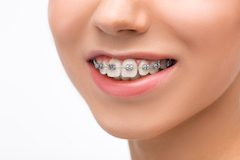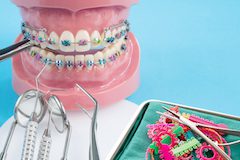Sjogren’s syndrome is an autoimmune disorder that significantly affects the glands of the body. It also affects other body organs, including the liver, pancreas, kidneys, lungs, blood vessels, and brain. The most common symptoms associated with this syndrome are dry eyes and mouth.
The Top 3 Dental Issues of Sjogren’s Syndrome Are:
- Altered taste
- High risk of cavities
- Cheek and lip biting
When Sjogren’s syndrome affects oral health, the person feels an altered taste in the mouth. This dry mouth significantly impairs the taste buds, and as a result, eating becomes less enjoyable because one loses the perception of taste.
Sjogren’s syndrome affects saliva production in the mouth, leading to cavity formation and other associated features. Saliva is a natural teeth protector and helps to protect against mouth infections, tooth loss, tooth pain, and cavity formation. However, this syndrome impairs saliva production, and if not addressed well on time, one can lose their tooth altogether.
With dry mouth because of Sjogren’s syndrome, the lips and cheek get stuck, and patients are more likely to bite their cheeks or lips. As a result, it can lead to the formation of mouth ulcers and other oral health problems.
What Does Sjogren’s Syndrome Do to Your Oral Health?
Sjogren’s syndrome can make chewing and swallowing difficult because of dry throat and tongue. Moreover, it can lead to a condition known as “xerostomia,” or dry mouth with insufficient saliva production.
For good oral health, saliva is highly essential. When saliva production is less, it can cause dental caries, periodontal disease, oral candidiasis, and oral infections. However, the following tips can help you prevent oral health problems associated with Sjogren’s syndrome.
Tips for Better Oral Health with Sjogren’s Syndrome
Some helpful tips to prevent cavities and dry mouth are:
- Regular Dental Visit
It is recommended to visit your dentist regularly, at least once a month. Have your teeth frequently examined to avoid problems associated with Sjogren’s syndrome. Also, ask your dentist to recommend a good fluoride toothpaste or mouth rinse for better results.

- Avoid Sugary Items
Avoid sugary drinks and foods as much as possible to maintain good oral health. However, if you still want to have them, brush your teeth immediately after having them.
- Use Lip Balm
Lips balm proves helpful to cure dry and cracked lips. If you have Sjogren’s syndrome, your lips will dry, and a lip balm will facilitate you.
Conclusion
Though there is no proper diagnosis for Sjogren’s syndrome, it can still cause significant loss to one’s oral health. However, a lot can be done to maintain good oral health to reduce its repercussions. The above-given tips are good to consider in this regard.
To learn more about Sjogren’s Syndrome, contact your dentists in Petaluma, Amir Hosseini, DDS, Azadeh Hosseini, DDS, and Ghazal Hosseini, DDS at Petaluma Braces & Family
Resource:
Orthodontics: What is the Specialty of an Orthodontist?
*Neither this nor any other content in this media is meant to prescribe, recommend, or prevent any treatment or procedure. We highly recommend that you get the advice of a qualified dentist or other medical practitioners regarding your specific dental condition.



